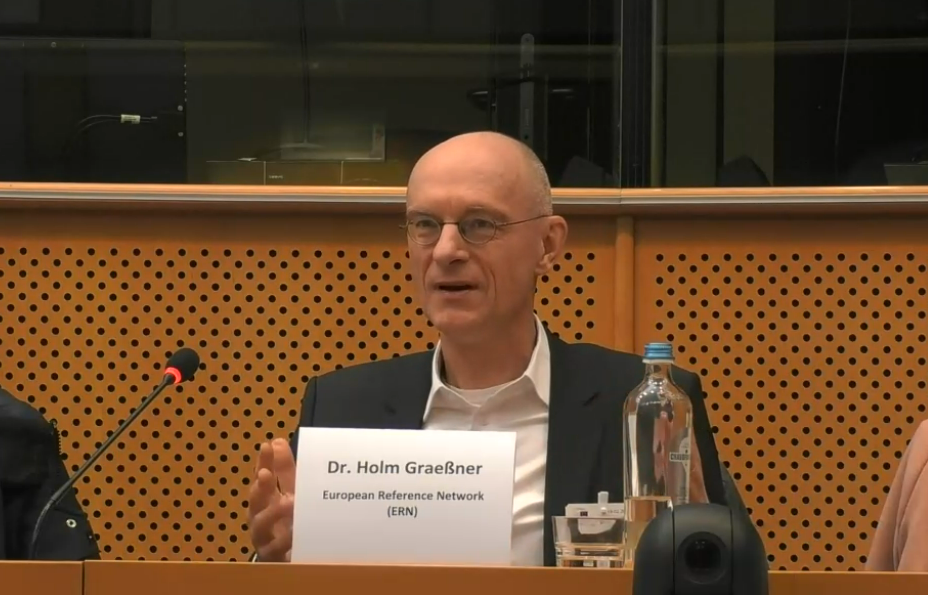“Does current policy meet the needs of the rare neurology community” and “The impact of rare neurological conditions, through the lifecourse”- those were the two panel discussions at EFNA’s meeting “Shaping the Future: Policy Responses to Rare Neurological Challenges” with the MEP Interest Group Brain Health and Neurological Conditions on February 19 in Brussels.
(European) Patient Organizations, represented through Arabela Acalinei, Merete Haaseth Avery, Jean-Philippe Plançon, José Ángel Aibar and Lutgarde Allard, ERN-RND coordinator Holm Gaessner and MEPs Billy Kelleher, Tilly Metz, Tomislav Sokol, Margarita de la Pisa Carrión, Ondřej Dostál and Romana Jerković attended this meeting.
Holm Graessner emphasized the importance of ERNs – on European as well as on national level – and thus the need to sustain them in the future. He also encouraged to make more use of the ERNs, also in regards to research and HTA (Health Technology Assessment) purposes – the MEPs were fully supportive towards those policy asks.
Watch the recorded meeting here.
MEP Meeting on Brain Health and Neurological Conditions

